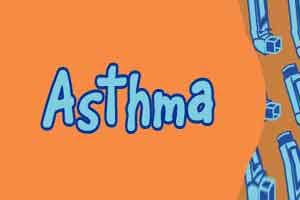- Home
- Editorial
- News
- Practice Guidelines
- Anesthesiology Guidelines
- Cancer Guidelines
- Cardiac Sciences Guidelines
- Critical Care Guidelines
- Dentistry Guidelines
- Dermatology Guidelines
- Diabetes and Endo Guidelines
- Diagnostics Guidelines
- ENT Guidelines
- Featured Practice Guidelines
- Gastroenterology Guidelines
- Geriatrics Guidelines
- Medicine Guidelines
- Nephrology Guidelines
- Neurosciences Guidelines
- Obs and Gynae Guidelines
- Ophthalmology Guidelines
- Orthopaedics Guidelines
- Paediatrics Guidelines
- Psychiatry Guidelines
- Pulmonology Guidelines
- Radiology Guidelines
- Surgery Guidelines
- Urology Guidelines
Hard to control asthma has distinct features, study shows

Bronchodilator responsiveness, nasal inflammation and allergy were among the most significant baseline features that distinguished hard-to-control asthma in inner-city children and adolescents. These characteristics identified patients whose asthma did...
Bronchodilator responsiveness, nasal inflammation and allergy were among the most significant baseline features that distinguished hard to control asthma in inner-city children and adolescents. These characteristics identified patients whose asthma did not improve throughout the year, despite adherence to the most intensive treatment based on national guidelines. Patients with hard-to-control asthma also had exacerbations peaking in the spring and fall, and more nighttime symptoms in the fall and winter.
These findings from the Inner City Asthma Consortium study, funded by the National Institutes of Health (NIH), were published in the Journal of Allergy and Clinical Immunology.
"Our study found striking differences in how children with asthma respond to treatment, and these were associated with clinical factors that can be identified from the start," said Jacqueline Pongracic, MD, lead author, Head of Allergy and Immunology Division at Ann & Robert H. Lurie Children's Hospital of Chicago and Professor of Pediatrics and Medicine at Northwestern University Feinberg School of Medicine. "Being able to predict whether a child's asthma will be easy or difficult to control will help us provide a more personalized treatment approach."
The study included 619 patients with asthma, 6 to 17 years old, from nine urban communities across the country, representing mainly African American and Latino populations. All children underwent standardized assessment and bimonthly guideline-based management visits over the course of one year. Researchers examined 44 clinical features in a broad range of domains that were previously reported as potentially contributing to asthma severity and response to treatment.
"One of the novel aspects of our study is that we evaluated children with asthma over an entire year, which allowed us to more accurately characterize their disease," said Pongracic.
The study found that children with hard-to-control asthma were twice as responsive to a bronchodilator, compared to the easy-to-control asthma group. Results also demonstrated that nasal inflammation is a key factor affecting response to asthma therapy, reinforcing recommendations that nasal symptoms should be treated as part of asthma management. Allergy, especially to mold, was also an important feature of hard-to-control asthma.
While children with easy-to-control asthma were able to progressively taper their medication requirements over the year, the hard-to-control asthma group could not, showing no improvement in lung function and seasonal worsening in symptoms. Adherence to asthma therapy was comparable in both groups.
"Our findings emphasize the unique nature of hard-to-control asthma in children," said Pongracic. "Performing selected key assessments early on may help identify which children are likely to need higher doses of daily medications and to benefit from management by a pediatric allergist or asthma specialist."
You can read the full Article by clicking on the following link :
Edward M. Zoratti, Rebecca Z. Krouse, Denise C. Babineau, Jacqueline A. Pongracic, George T. O'Connor, Robert A. Wood, Gurjit K. Khurana Hershey, Carolyn M. Kercsmar, Rebecca S. Gruchalla, Meyer Kattan, Stephen J. Teach, Steven M. Sigelman, Peter J. Gergen, Alkis Togias, Cynthia M. Visness, William W. Busse, Andrew H. Liu. Asthma phenotypes in inner-city children. Journal of Allergy and Clinical Immunology, 2016; 138 (4): 1016 DOI:10.1016/j.jaci.2016.06.061

Disclaimer: This site is primarily intended for healthcare professionals. Any content/information on this website does not replace the advice of medical and/or health professionals and should not be construed as medical/diagnostic advice/endorsement or prescription. Use of this site is subject to our terms of use, privacy policy, advertisement policy. © 2020 Minerva Medical Treatment Pvt Ltd